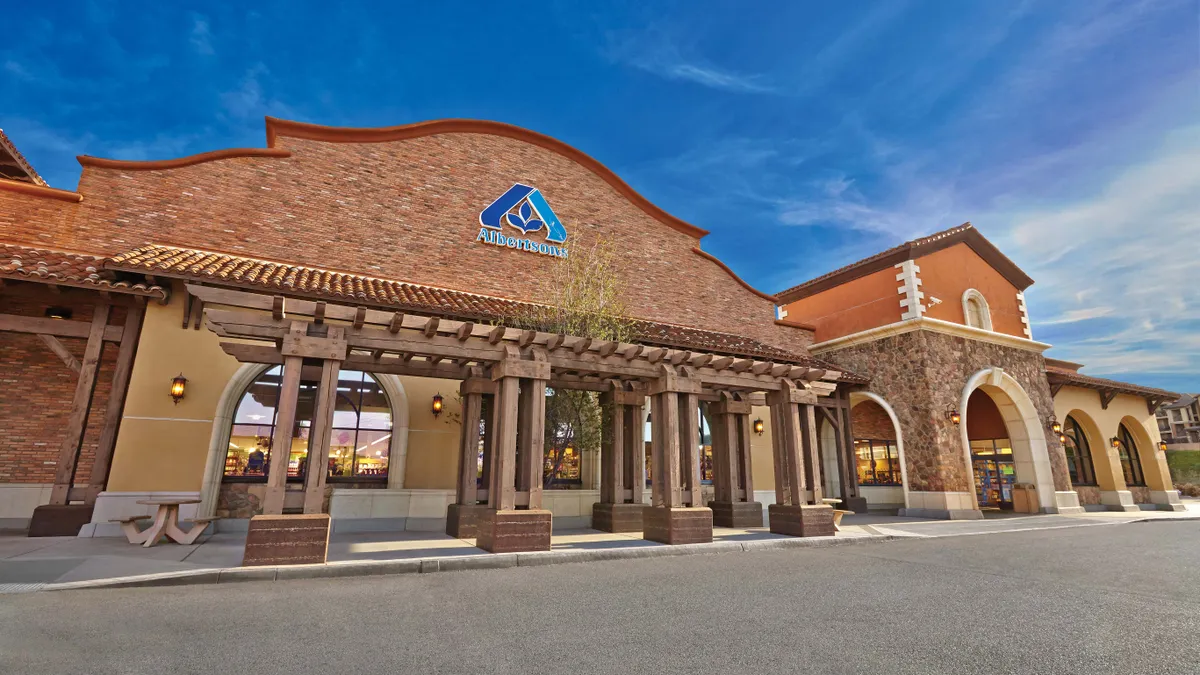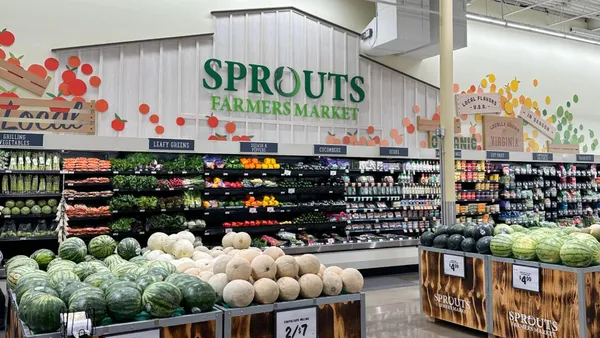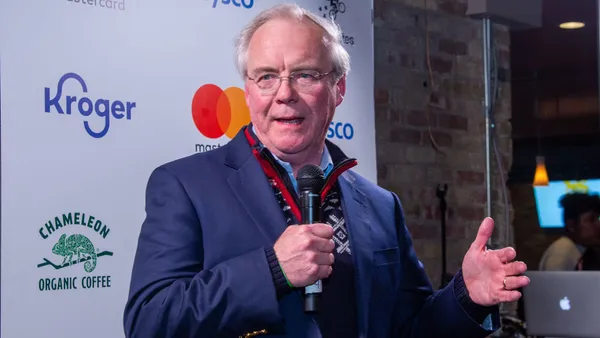Dive Brief:
- Albertsons is looking to ward off concerns from a group of bipartisan attorneys general, who say the grocery company's upcoming $4 billion special dividend could weaken its financial health and ability to compete, while rewarding investors.
- Attorneys general for five states and Washington, D.C., on Wednesday called on Albertsons to stop the issuance of the special dividend until the regulatory review of the proposed merger with Kroger is complete. The dividend, which is part of the merger agreement, is set to pay out on Nov. 7.
- In a statement to Grocery Dive, Albertsons said the planned dividend will not drain its finances: “Following the dividend payment, Albertsons Cos. will continue to be well capitalized with a low debt profile and strong free cash flow.”
Dive Insight:
The letter to the CEOs of Albertsons and Kroger calls out not only the sizable amount of the dividend but also notes that the merger is not guaranteed to receive regulatory approval.
The attorneys general from Arizona, Idaho, California, Illinois, Washington and Washington, D.C., said their offices are scrutinizing the proposed merger to determine whether the deal would result in higher prices for consumers, suppress workers’ wages or lead to any other anti-competitive impacts.
“Should any regulatory challenge to the merger succeed, or should the parties abandon the transaction, Albertsons would have to continue to compete with other grocery stores, a goal that its decision to enrich its shareholders to the tune of $4 billion will have made significantly more difficult to accomplish, if not unattainable altogether,” the letter said.
Kroger and Albertsons have said they expect their $24.6 billion deal to close in early 2024, but the proposed merger between the first- and second-largest supermarket chains in the U.S. will likely face intense antitrust scrutiny by the Federal Trade Commission, experts say.
“Our planned combination with Kroger will provide significant benefits to consumers, associates, and communities and offers a compelling alternative to larger and non-union competitors,” Albertsons said in the statement.
However, the attorneys general noted that Albertsons will legally need to continue to compete with Kroger until the merger closes: “[P]aying a dividend of this size will hamper its ability to meaningfully compete with Kroger.”
The amount of the special dividend is roughly one-third Albertsons’ market capitalization of approximately $11.19 billion, according to the attorneys general, and is comparable to the total of cash and cash equivalents ($3.392 billion) and net receivables ($652 million) the grocery company reported in a recent Securities and Exchange Commission filing.
Albertsons in the statement said the dividend allows the company to return cash to its shareholders without ruining its financial outlook: “Given our financial strength and positive business outlook, we are confident that we will maintain our strong financial position as we work toward the closing of the merger.”
Karl Racine, attorney general for Washington, D.C., told CNBC’s Squawk Box Wednesday that special dividend “could be valid or could amount to a massive, improper giveaway to certain shareholders.”
“Four billion out of the account for Albertsons is going to make it quite difficult for Albertsons to compete in a very, very tough marketplace,” Racine said. “That may weaken Albertsons and it may lead to a conclusion that is a foregone conclusion — not one that would result form a proper review of a merger.”
Racine said in the interview his office will take the investigation “in stages,” with the first stage aiming to stop the dividend payment and then review the entirety of the merger.
Seven local union groups under the United Food and Commercial Workers International Union (UFCW) and International Brotherhood of Teamsters in an emailed statement applauded the move by the attorneys general.
“Any effort to rush this payment threatens thousands of jobs of essential grocery store workers and millions of shoppers who would suffer from reduced competition, reduced choice and increased costs in markets across the United States,” per the statement from UFCWs 5, 7, 324, 367, 770 and 3000, and Teamsters 38.
They said they expect Albertsons’ and Kroger’s CEOs to “respond positively to the Attorneys General by the end of the day on Friday and stop the issuance of the special dividend.”
In its own statement, UFCW 324 said the $4 billion could be used to lower food prices, boost worker pay or invest in improving store safety.
The attorneys general requested the grocery CEOs to respond by Friday and let them know what the status of the dividend is.
Meanwhile, an upcoming Senate antitrust panel is planning to examine how the Kroger-Albertsons merger could impact competition in the grocery industry.












